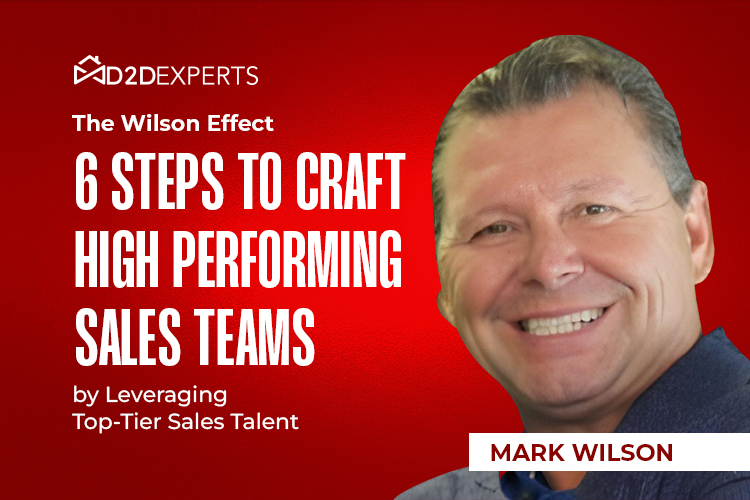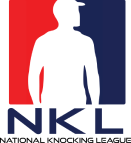Hey everyone, Let’s talk about Mark Wilson’s 6-step framework for building high performing sales teams from another episode of the D2D Podcast.
Originally from Knight’s very, Very California, Mark is not just a seasoned veteran with over 30 years in door-to-door sales; he’s a living legend.
Mark’s contributions to door-to-door sales are unparalleled, from breaking records with 500 deals out of one office to transitioning his team to dominate the solar market. His work in authoring “Closers Get Paid” and rewriting “Think and Grow Rich” for a modern audience further cements his status as a visionary in our field.
Let’s explore what makes a peak performer in door to door sales, distilled from Mark Wilson’s wisdom.
Creating Peak Performers: The 6-Step Wilson Method
Let’s talk about Marl’s 6-step method to creating peak performers. Watch the video for a detailed discussion or read for a brief overview.
1- Establishing Unshakable Rapport
Building rapport is the foundation of any successful sale and the first step in creating a peak performer. For Mark, this goes beyond mere pleasantries—it’s about connecting on a deeper level, understanding each salesperson’s unique challenges and aspirations, and fostering trust that empowers them to be vulnerable and open to growth.
2- Identifying Areas of Improvement
Peak performance is not about perfection; it’s about progression. Mark emphasizes the importance of pinpointing specific areas where a salesperson can improve, whether it’s their approach to handling objections, door approach, or closing technique. This tailored focus ensures that improvement efforts are directed where they can make the most impact.
3- Reframing the Mental Picture
According to Mark, what salespeople visualize before they even knock on a door can predetermine their success. He teaches his team to envision positive outcomes, thereby rewiring their brain to associate door-knocking with opportunity rather than rejection.
4- Elevating Self-Talk
The internal dialogue accompanying a salesperson throughout their day can be their greatest ally or worst enemy. Mark coaches his team to cultivate empowering self-talk that reinforces their ability to achieve their goals, transforming doubts into affirmations of their capability and worth.
5- Conditioning for Success
Repetition is the mother of skill, and Mark knows that consistent practice and conditioning are key to mastering any aspect of the sales process. Through deliberate practice and repetition, sales techniques transition from a conscious effort to automatic excellence.
6- Connecting to a Higher Purpose
Finally, Mark emphasizes linking sales goals to a higher purpose. It’s not just about hitting numbers; it’s about what those numbers represent—financial freedom, personal growth, or the ability to contribute to something greater than oneself. This connection to a larger cause fuels motivation and resilience.
Conclusion: The Wilson Legacy in Door-to-Door Sales
Mark Wilson’s journey is more than just a story of personal success; it’s a blueprint for anyone in the door-to-door sales industry looking to elevate their game. Sales leaders can cultivate teams of peak performers by focusing on rapport, targeted improvement, positive visualization, empowering self-talk, consistent conditioning, and a connection to a higher purpose.
As we honor Mark’s 30-year milestone, let’s move beyond admiration to action—embracing and applying his strategies.
Join our Business Bootcamp now to create sales teams that meet their sales targets and excel in all life areas with business leadership coaching.
This is your opportunity to learn and actively apply Mark’s blueprint for success—building deep rapport, targeting areas for improvement, fostering positive visualization and self-talk, and forging a connection to a higher purpose within your sales teams.
I knocked doors since I was 11! Never bought into the whole hourly normal job, and used direct sales to be the vehicle to create MASSIVE success. I Started the Direct Sales division for Solcius as their VP building it up to have 70+ sales reps nation wide. In 2018 I left to pursue a greater mission to unify and uplevel the Door to Door industry and founded the D2D Experts.

























